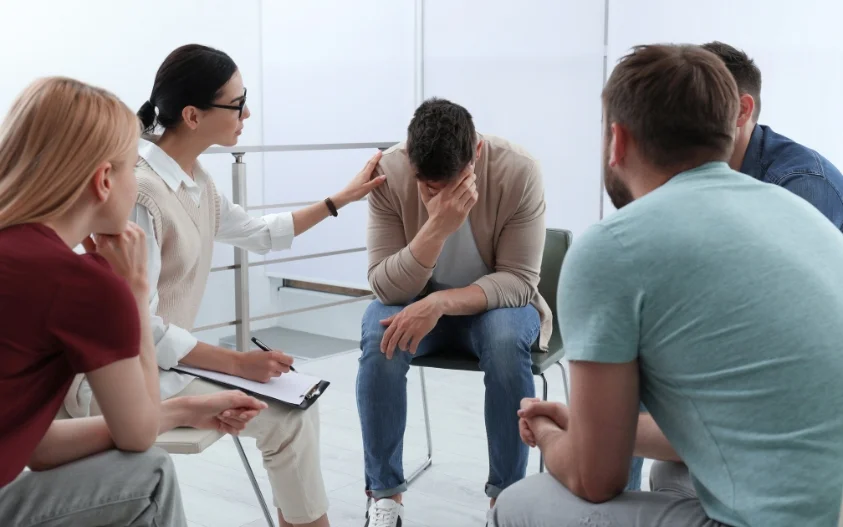24/7 Helpline:
(866) 899-221924/7 Helpline:
(866) 899-2219
Learn more about Prescription drug Rehab centers in Greeneville
Prescription drug Rehab in Other Cities

Other Insurance Options

Magellan

Molina Healthcare

State Farm

PHCS Network

American Behavioral

Covered California

Group Health Incorporated

Lucent

Multiplan

EmblemHealth

WellPoint

Access to Recovery (ATR) Voucher

Health Choice

BlueCross

Evernorth

Carleon

Horizon Healthcare Service

BlueShield

UMR

BHS | Behavioral Health Systems

Frontier Health – Nolachuckey Holston Area Mental Health Center
Frontier Health - Nolachuckey Holston Area Mental Health Center is located in Greeneville, Tennessee...

U Turn For Christ
U-Turn For Christ is a residential facility that offers treatment for individuals with a Substance a...

CCS – Comprehensive Connections – Outpatient
Comprehensive Community Services (CSS) - Outpatient is located in Greeneville, Tennessee. Comprehens...







Takoma Regional Hospital – Behavioral Health
Takoma Regional Hospital – Behavioral Health is a private rehab located in Greeneville, Tennessee. T...



